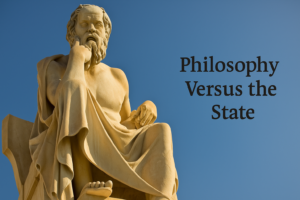Plato, one of the most influential philosophers of antiquity, left a lasting imprint on Western philosophical thought through his metaphysics, particularly his theory of forms. In this article, we will delve into the world of Plato’s ideas and explore the major influence they had on Western philosophy.

Plato’s Ideas
For Plato, the world we perceive through our senses is actually an imperfect and changing copy of the true world of reality, a world of eternal and unchanging ideas or forms. He argues that the material objects we see around us are only temporary and defective manifestations of these perfect forms.
For example, a hand-drawn circle is never perfectly circular, but the idea of circularity, the Shape of the Circle, is unchanging and perfect. Objects in the material world are imperfect reflections of these ideal forms.
The Theory of Forms
Plato’s theory of forms is based on several key principles:
- Forms are real: Plato asserts that Forms are the most real and important entities, unlike material objects which are changeable and temporary.
- Forms are universal: Each Form is the source of all instances of its concept in the material world. For example, the Form of Beauty is the source of all beauty in the world.
- Forms are eternal: Forms exist independently of time and space, and they are immutable.
- Forms are accessible through reason: Plato believed that true knowledge arises from the contemplation of Forms through reason, rather than through sensory experience.
Influence on Western Philosophy
Plato’s metaphysics, particularly his theory of Forms, had a profound influence on Western philosophy. Here are some of his main contributions:
- Medieval Philosophy: Plato’s ideas were integrated into medieval philosophy, particularly by thinkers like Augustine of Hippo and Thomas Aquinas. The concept of Forms has been adapted to harmonize with Christian theology.
- Idealism: Idealist philosophers such as George Berkeley and Immanuel Kant were influenced by the notion of immaterial realities and developed ideas about the nature of reality and knowledge.
- Contemporary Philosophy: 20th century thinkers such as Alfred North Whitehead and Bertrand Russell discussed and criticized Plato’s ideas on the Forms, contributing to the continued philosophical dialogue on this subject.
- Science and Mathematics: Mathematics, particularly geometry, was influenced by the Platonic view of ideal forms. This influence continues to be noticeable in discussions of the nature of mathematics.
In conclusion, Plato’s metaphysics, with his theory of Forms, had a profound impact on Western philosophy. His ideas have fueled enduring philosophical debates about the nature of reality, knowledge, and truth, and they continue to influence contemporary philosophical thought. The Platonic vision of the Forms opened the way to numerous reflections on the nature of the universe and human thought.













